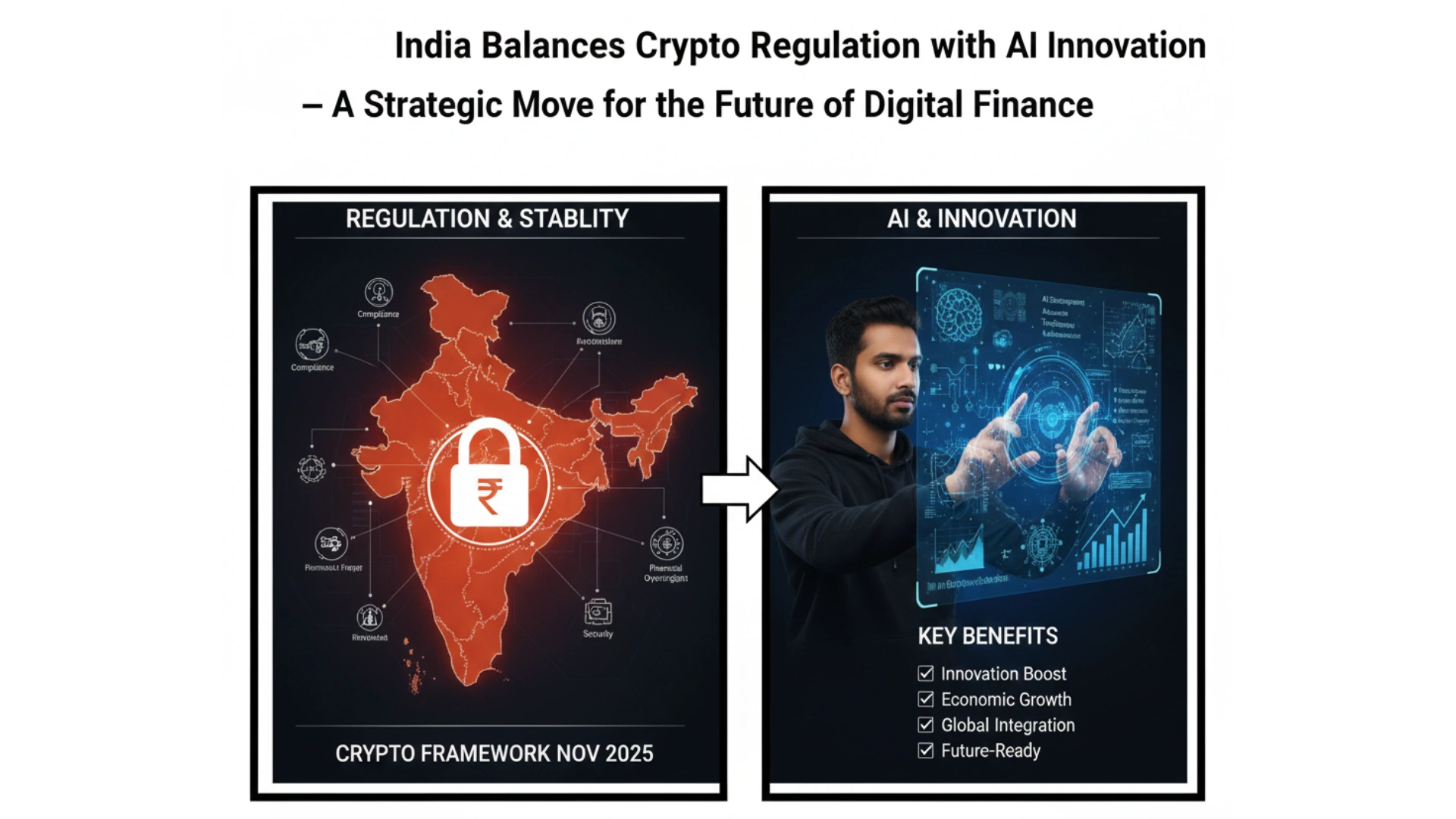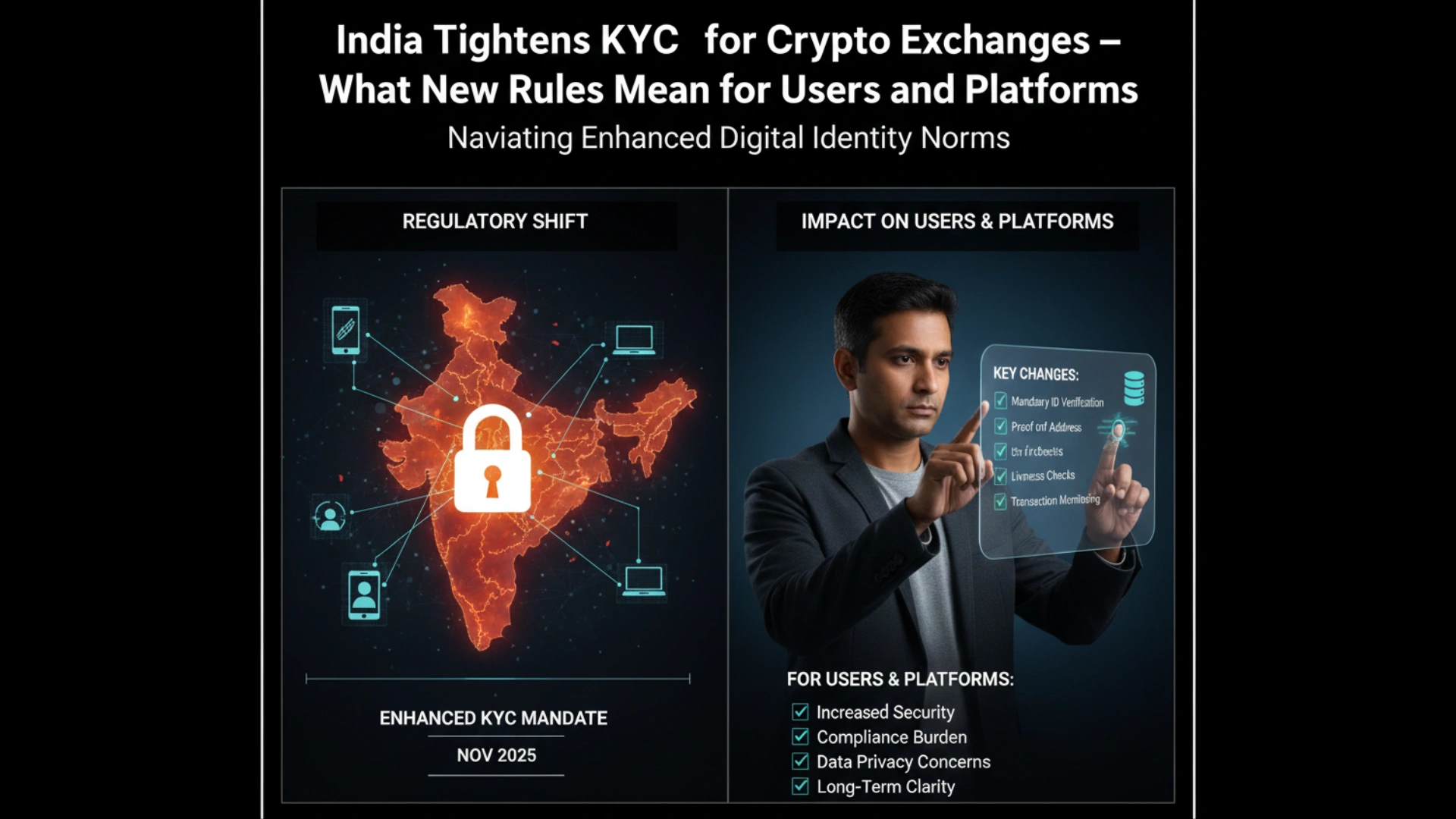India is once again delivering conflicting signals regarding Bitcoin and cryptocurrency legislation. A recently leaked government paper shows that India is intentionally avoiding granting cryptocurrencies full legal recognition. The document suggests that India prefers limited oversight rather than implementing a comprehensive crypto law—mainly due to systemic risks associated with mainstream crypto adoption.
What the Government Document Reveals About India’s Reluctance
1. Fear of Systemic Risk
The paper highlights that regulators fear cryptocurrencies could become “systemic,” meaning they may interfere with or destabilize India’s traditional financial system. According to the RBI, simply regulating crypto may not be enough to manage its inherent risks.
2. Avoiding Over-Legitimization
One major concern is that a full regulatory framework could unintentionally grant crypto assets legitimacy, potentially accelerating mass adoption. Regulators fear this surge could push crypto deeper into India’s economy, making it harder to control.
3. Stablecoin Risks
The document also flags stablecoins—especially those pegged to the US dollar—as a serious concern. Authorities fear that widespread stablecoin usage could fragment India’s robust payment ecosystem, particularly the Unified Payments Interface (UPI).
4. A Ban Is Not a Solution
While some believe banning crypto could solve the problem, the government acknowledges this would fail. Decentralized exchanges (DEXs) and peer-to-peer transfers cannot be fully monitored or shut down. Instead, India plans to require global crypto exchanges to register locally and comply with strict AML rules.
How India Is Currently Managing Cryptocurrency
Instead of a detailed law, India is using indirect restrictions and compliance rules to limit exposure:
- High taxation: 1% TDS on every transaction + 30% tax on crypto profits.
- Mandatory FIU registration: Global exchanges must register with the Financial Intelligence Unit to operate in India.
Stakeholder Responses
1. Reserve Bank of India (RBI)
The RBI has consistently expressed skepticism towards cryptocurrency. The leaked paper states that full regulation may not adequately mitigate risk. The RBI believes that widespread crypto adoption could threaten monetary stability.
2. The Supreme Court of India
In a notable development, the Supreme Court has criticized the government for delaying a clear crypto policy. Judges have questioned why no “clear-cut” regulatory framework exists despite the sector’s massive growth.
3. The Indian Crypto Industry
Web3 startups, exchanges, and crypto advocates are watching closely. Many support the fact that crypto is not being banned, but they remain frustrated by unclear rules and heavy taxation.
What This Means for Crypto Investors in India
Pros
- Crypto is not banned — trading continues.
- Global exchanges can operate under domestic rules.
- High taxation reduces scam-driven speculation.
Cons
- No legal protection like traditional financial assets.
- 30% tax + 1% TDS significantly reduces profits.
- Regulatory uncertainty complicates long-term planning.
Possible Future Scenarios
1. Continued Partial Regulation
India might continue its current strategy—monitoring crypto without granting full legitimacy.
2. Delayed Comprehensive Regulation
The government may wait for global clarity (especially from the US, EU, and G20) before drafting a full crypto law.
3. Gradual Regulation
A phased model could be implemented:
- Phase 1: AML rules + mandatory exchange registration
- Phase 2: Limited frameworks for stablecoins and tokenized assets
Why India’s Crypto Strategy Matters Globally
India is one of the world’s largest and fastest-growing crypto markets. With billions invested by Indian users, the country’s regulatory stance influences global sentiment. India’s cautious approach may inspire other nations seeking to balance innovation with systemic safety. However, being overly restrictive could drive talent and capital to crypto-friendlier nations.
Risks & Challenges in India’s Current Crypto Approach
- Regulatory Arbitrage: Investors may shift to offshore or decentralized platforms.
- Tax Evasion: High taxes may encourage non-compliance.
- Innovation Drain: Web3 startups may migrate to more supportive countries.
- Payment System Fragmentation: Unchecked stablecoins could threaten UPI.
- Enforcement Limitations: P2P and DEX transactions are difficult to monitor.






